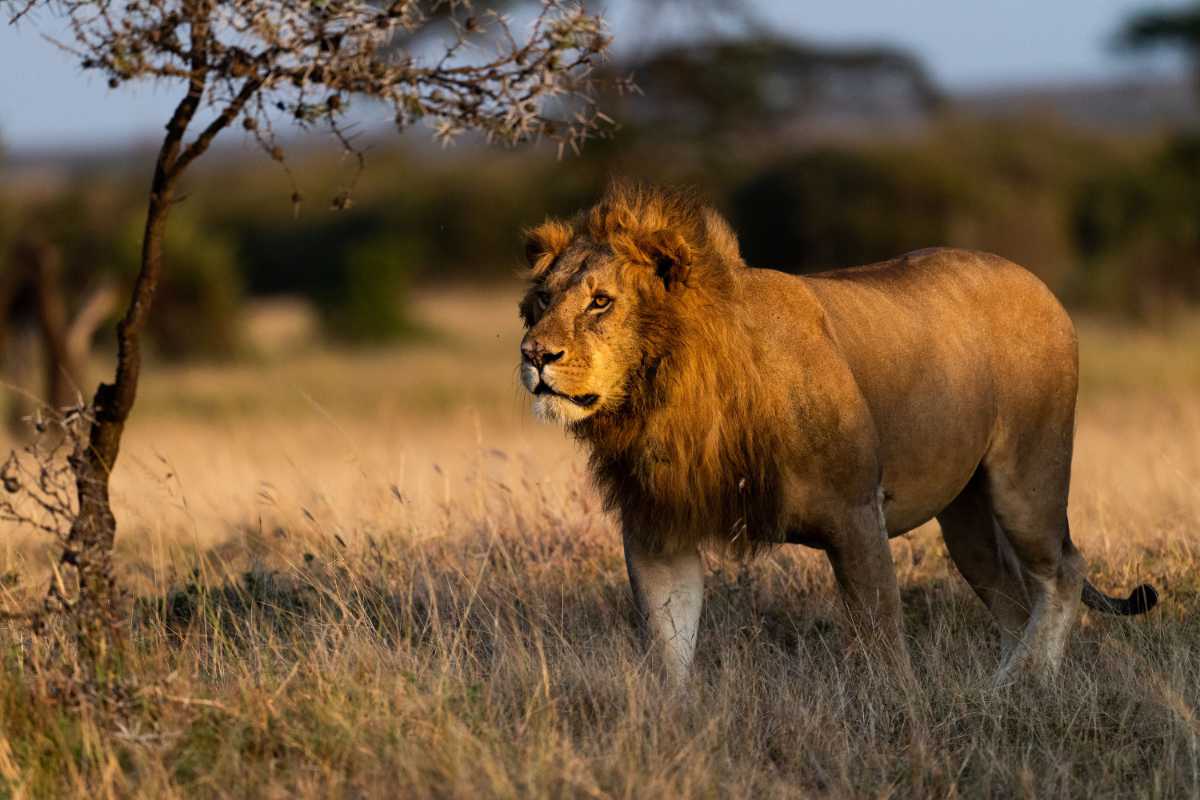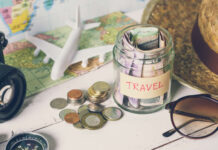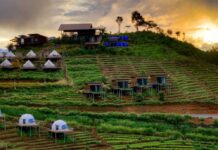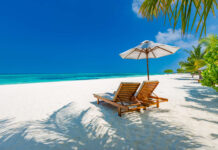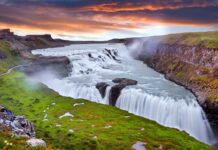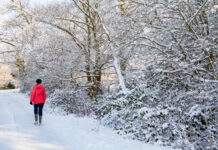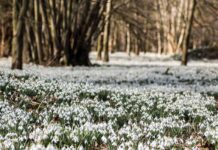Sprawled out on rocks lining the riverbank, a lioness and her cub are lazing in the sun. Only moments previously, we’d found two males (probably from the same pride) with bulging bellies, digesting the remains of a wildebeest they’d hunted that morning. Everyone was enjoying a post-lunch siesta – even sleepier than usual in the absence of engines to disrupt their slumber.
As is the case with so many popular tourist destinations, coronavirus has decimated visitor numbers to the Masai Mara National Reserve. At this time of year, thousands would be coming to see wildebeest cross back to Tanzania, but now only a few vehicles are trundling along the horizon.
International travel to Kenya resumed on August 1, but with almost the entire African continent labelled a no-go zone by our Foreign, Commonwealth & Development Office (FCDO), few of us have chosen to travel. Ironically, infection rates per capita have frequently been much lower than Spain or Sweden; which potentially means Kenya could have been granted a travel corridor months ago.
Tourism CS @tunajibu welcomes you back to Kenya and urges travelers to follow The Health & Safety Protocols by the Ministry of Health. Karibu Kenya, Hakuna Matata. #SafeTravels #TheMagicAwaits #MagicalKenya#LiveTheMagic@Min_TourismKE @MOH_Kenya pic.twitter.com/hhCyyDqFC8
— Kenya Tourism Board (@magicalkenya) August 1, 2020
Although authorities advise against visiting the country, it’s not forbidden; flights are operating from London Heathrow and safety protocols have been put in place.
I weighed up the pros and cons, reaching the conclusion a two-week quarantine upon my return was a worthwhile sacrifice for experiencing what it’s like to safari right now.
Having purchased insurance through Battleface (one of the few companies prepared to insure travellers to destinations with an FCDO advisory), I booked a private Covid Antigen PCR test, which cost £175. All arrivals into Nairobi are required to have a negative test result processed no more than 96 hours before arrival; you won’t be able to board a plane without a certificate.
My choice of airline was also crucial. While some carriers have been forced to cut capacity or reschedule at the last minute, Ethiopian Airlines have proven to be reliable and robust. (A switch to shifting cargo means they’ve not laid off a single member of staff.)
View this post on Instagram
Africa’s relatively low death rate in comparison to Europe continues to be one of the pandemic’s big mysteries. At Asilia’s Rekero Camp, scenically set along the Talek river, few members of staff know anyone who’s had Covid. Still, there are strict rules in place: any workers returning from leave must quarantine for 14 days, vehicles are fully sanitised and carry less passengers, and all guides wear masks.
Regardless, the fresh air and a sense of escapism quickly blew away any of my concerns. Other guests agreed. One young Swiss couple told me they’d booked last minute, preferring to wait until they’d received negative test results; a pair of American retirees had simply thrown caution (and face masks) to the wind, with the rationale time on this planet is all too short.
The wildebeest herds are crossing the Sand River from the Serengeti as the world’s greatest wildlife spectacle arrives in Kenya’s Maasai Mara and #MagicalKenyaLive is here to bring you all the action #themagicawaits pic.twitter.com/QZbc1wTFNA
— Kenya Tourism Board (@magicalkenya) August 5, 2020
“The wildebeest crossings this year were fantastic,” explained camp manager Richard, as we sat on a wooden deck, watching crocs sunbathe on the granite rocks below. “Sometimes there would only be one vehicle.”
His words painted a very different scene to the one that has marred the great wildlife phenomena in recent years; stories of bad behaviour at the riverfront and overcrowding have put people off coming in the past.
This summer, most spectators were Kenyan residents paying reduced rates; the rare opportunity for local communities to experience nature on their doorstep was applauded by conservationists who hope it might have given them extra incentive to safeguard wild spaces.
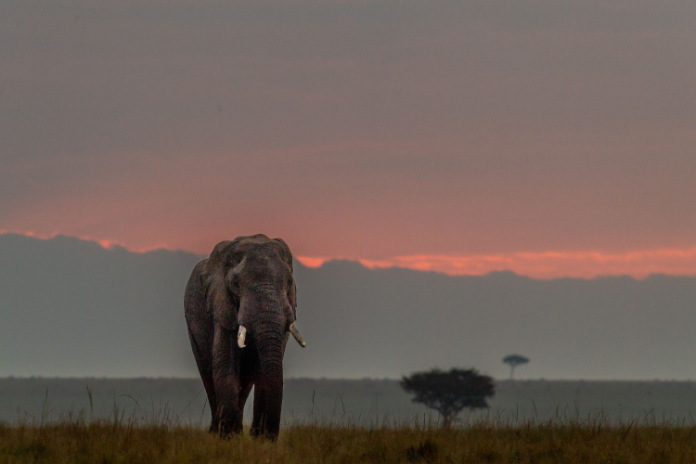
After several months of closure, many of the Mara’s tracks have been reclaimed by grass and the sight of vehicles was a shock to some newborn jackal pups and lion cubs. But slowly, some sort of normality is resuming.
On one of my afternoon game drives, the sighting of a leopard did bring with it an avalanche of vehicles. Dust clouds formed as wheels spun and drivers jostled for position along a gulley. We left them to it, because out on the vast plains where solitary balanite trees withstand the mood swings of big, bold, temperamental skies, there’s so much more – crowd-free – to see.
Denied a horizon for so long, I traced the outline of endless savannas and rising escarpments with my eyes. Open and exposed, grasslands rolled like desert dunes and curtains of rain hung above far-off lands.
Sunrises were equally enthralling. It’s no accident Disney chose to shoot the opening daybreak sequence of The Lion King from Rekero’s arresting vantage point.
View this post on Instagram
After months of lockdown, I even enjoyed lying in bed, listening to hippos grunting and lions roaring – a powerful, guttural force that makes you tremble to the core.
In the neighbouring conservancies (community-owned land bordering the Reserve), where no self-drivers are allowed, more intimate wildlife experiences were in store. Cheetahs have found solitude in the managed spaces, where less vehicles interrupt their daytime hunts, and lion numbers continue to soar – partly due to conservation efforts, but also as a result of shrinking space.
I stayed in Naboisho, one of the youngest conservancies, where Asilia have a camp. Last year, David Attenborough had lunch here with a group of influencers, including Brooklyn Beckham. He was in the area, staying at Asilia’s exclusive-use Topi House, to film scenes of wildebeest migration for his film, A Life On Our Planet.
“He had lots of good stories and liked a dram of whisky,” recalled accomplished walking guide Roelof Schutte, who hosted Sir David during his visit.
View this post on Instagram
During an early morning walk through the conservancy, Roelof and I discussed the impact of the pandemic, although our thoughts quickly wandered to pygmy kingfishers flashing their brilliant blue feathers and elephants silently grazing on acacia trees.
Hospital admissions may not be as high here, but Covid has still had a devastating impact in Kenya. The conservancy model is based on lodges leasing land from Maasai communities and a contribution from bed nights is donated to social projects, meaning a drop in tourism has hit everyone hard financially.
Salaries have been cut, jobs lost and there are less eyes on the ground to protect wildlife. During my stay, three lions, four hyenas and a pregnant eland were killed in a bushmeat snaring incident on the periphery of Ol Choro Conservancy – an incident later linked to poverty inflicted by the pandemic.
It is with tremendous sadness that we announce the tragic death of Rafiki, Lenkume, one of Lenkume’s sons, four hyenas…
Posted by Mara Predator Conservation Programme on Monday, October 5, 2020
Asilia continue to donate funds to projects, including the Mara Predator Conservation Project and the Maa Trust, and are also involved in an ambitious investment scheme with Conservation International to support the existence of conservancies long term.
At a time when money counts more than ever, those of us who choose to travel have a responsibility to invest wisely. Questions about sustainability and community support are ones we should increasingly be asking.
Although at its core, a safari is still a holiday. And not once during my visit, did I sense sadness or despondency. In fact, under the circumstances, game drives felt more like a Disney fantasy than ever before.
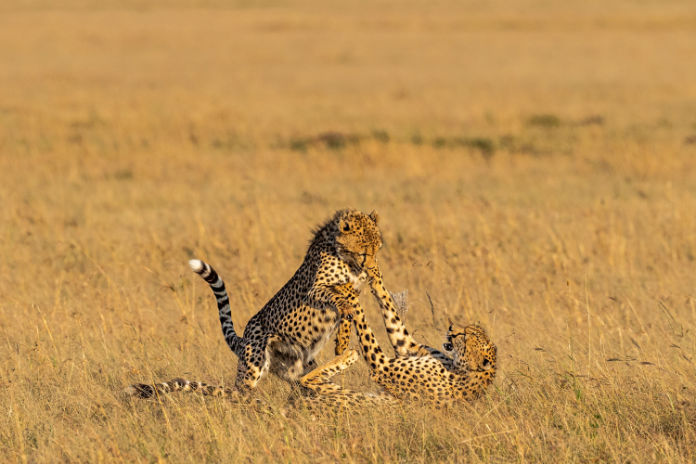
There were moments on the plains when, for the first time in eight months, I forgot about daily death counts and rates of transmission. Instead, I remembered all those things that make me feel alive: the freedom of space, the purity of nature, the connections with a wild world that continues to turn even when it feels like our own lives have come to a stop.
Safari is the same as it was 12 months ago: wildebeest are still migrating, lions haven’t stopped brawling and leopards continue to skulk in the shadows.
What’s different is us, our needs and our expectations. Right now, Africa’s magical wilderness fills a gaping void created by months of despondency and detachment. This is escapism in its truest form.
How to plan your trip
Abercrombie & Kent (abercrombiekent.co.uk; 01242 547 701) offers an eight-night trip to Kenya from £3,750pp. Includes three nights at Naboisho, three nights at Rekero and two nights at Hemmingways Nairobi. Includes international flights, transfers and full board while on safari. Based on low season departure in June 2021
Ethiopian Airlines also offer a weekly non-stop service from Manchester to Addis Ababa Bole.
You may also be interested in…























































